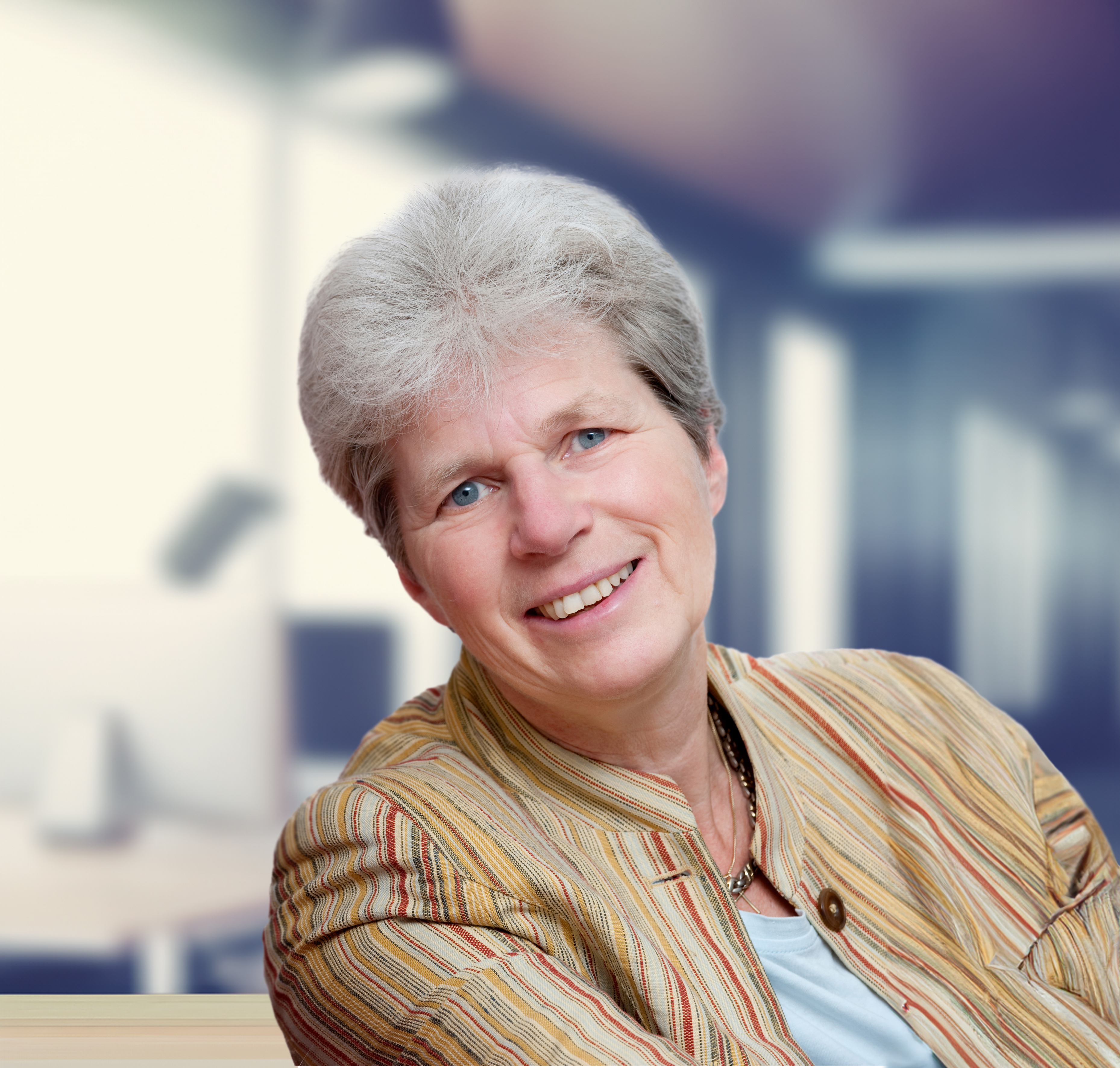Patient’s Perspective
04
‘I have lost my heart to patient organisations’ - An interview with Pauline Evers

The patient perspective is of vital importance to the Oncode Accelerator program. It’s hard to find someone more passionate about this than Pauline Evers, advocate for equal access to innovative treatments at NFK.
Since Oncode Accelerator aims to put patients in the centre of cancer drug development, an alliance with the Dutch Federation of Cancer Patient Organisations (NFK) seems like an obvious choice. Still, the match is not a natural one, since Oncode Accelerator focuses very early on in the pipeline of drug development. ‘The patient is still quite far away’, Pauline Evers, advocate at NFK, acknowledges. Still, she sees some potentially interesting collaborations.
Pauline Evers already works for over 16 years at NFK, after a long career in biomedical research and the pharmaceutical industry, including advisory roles at EMA, resulting in profound knowledge about the drug development process. Because of the close collaboration between industry and patients in that time, she knew the rare patient community well. Therefore, when she wanted something different in her career, she made the step towards the patient organization for rare conditions and later to NFK. Pauline enthusiastically explains: ‘All cancer patient organisations within NFK are committed to patients with a specific form of cancer or the consequences thereof. When issues are overarching and not tumour specific, me and my colleagues advocate for the patients. Within NFK we have four focal points of which equal access to innovative treatment and diagnostics is my focus area. That is where the goals of Oncode Accelerator and NFK are finding each other.’
I would consider Oncode Accelerator successful when at least half of the projects are focused on rare cancers.
As patient advocacy has been her passion for over 16 years, she must feel a deep connection with the subject. ‘Most certainly, but luckily not from personal experience’, she quickly adds. ‘But it’s just so inspiring to collaborate with these people. They are putting their hearts and souls into advocating, even when they have to do it besides work and their families, or even when they are still sick.’ She has seen patient advocacy and patient participation change tremendously over time. ‘Nowadays, patients and patient advocates have a lot of knowledge about the medical and biochemical background of therapies, besides their personal experience with the disease of course. They are taken much more seriously and are often a key element within a research project.’
She mentions the Patient Cohort Platform as the most obvious Oncode Accelerator Platform for NFK to collaborate with. ‘Using real-world data can help doctors and cancer patients to make better decisions on treatment. Drugs entering the market are not always evaluated on a ‘patient-like-me’. Real-world data makes it possible for the patient and doctor to decide on the best possible therapy.’ It is hard to pinpoint one topic or moment for NFK to be involved in, ‘because research always goes in small and unpredictable steps,’ she says. ‘At the moment, I don’t have a clear idea how we as NFK could contribute to for example the AI and the Organoids Platforms. But I’m keen to find out.’
Nowadays, patients and patient advocates are taken much more seriously and are often a key element within a research project.
Asked about an example of patient engagement in scientific research happening with support of the patient organisations that are a member of NFK, she mentions the breast cancer research group (BOOG). ‘In this group, the breast cancer patient organisation (BVN, ed.) is always part of the discussions on for instance research proposals. Patients are therefore continuously participating in research in a meaningful way. Not only do they bring their own views to a project, they also gain relevant experience in assessing research, which they can use in their next projects. I think BOOG is a great model for patient participation in scientific research and could serve as an example. The relation between BOOG and BVN is an example of a formalised one, but almost all our member organisations are in some way involved in scientific research.’
When would Oncode Accelerator for her as a patient advocate be a success? She doesn’t hesitate for a second. ‘I would consider Oncode Accelerator a successful program when at least half of the projects are focused on rare cancers.’ She explains that for the more common cancer types, the pharmaceutical industry is already working on many therapies; they can do this better and quicker than academic institutions. ‘However, there’s little profit to be made on rare cancers and they are therefore often neglected. That’s why I think academia and public-private partnerships like Oncode Accelerator, should focus more on developing treatments for these rare cancer types. Sometimes there are only twenty patients in the Netherlands. Drug development is different when the patient group is so small. We should address that difference, because these patients need us just as much as the others.’

NFK is the Dutch Federation of Cancer Patients Organisations. The federation forms an umbrella organisation for 21 organisations who represent patients with specific types of cancer. The ‘Patiëntenplatform Zeldzame kankers’ (patient platform rare cancers) is also part of NFK. Together with the members, NFK acts as an advocate for the 900.000 cancer patients in the Netherlands, their relatives, and for people with a (hereditary) predisposition to cancer. NFK collects experiences, needs and opinions from (former) cancer patients via their polling tool ‘Doneer Je Ervaring’ (‘Donate your experience’). The results give direction to their advocacy activities.
Currently, Oncode Accelerator and NFK have a collaboration based on a Memorandum of Understanding, with the aim to change this into a full partnership in the future.